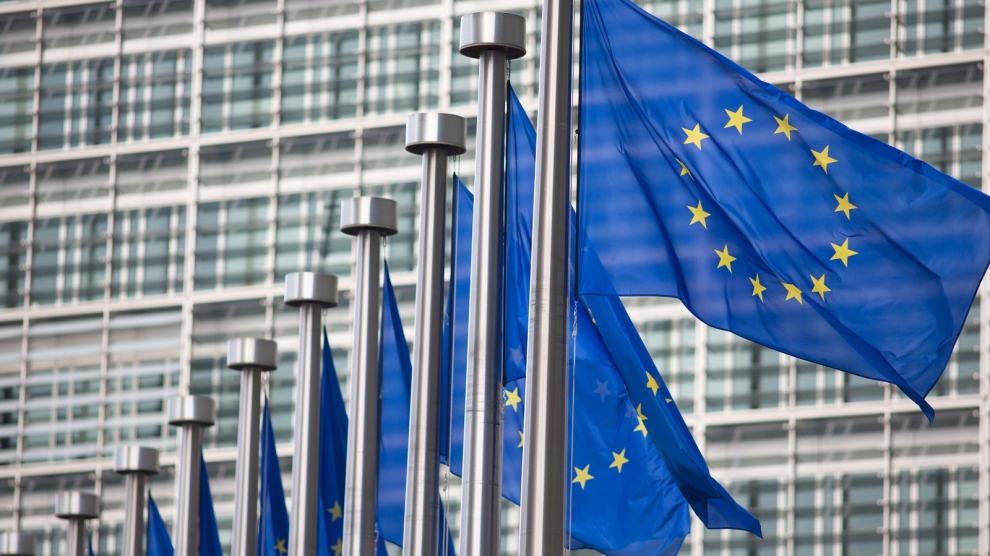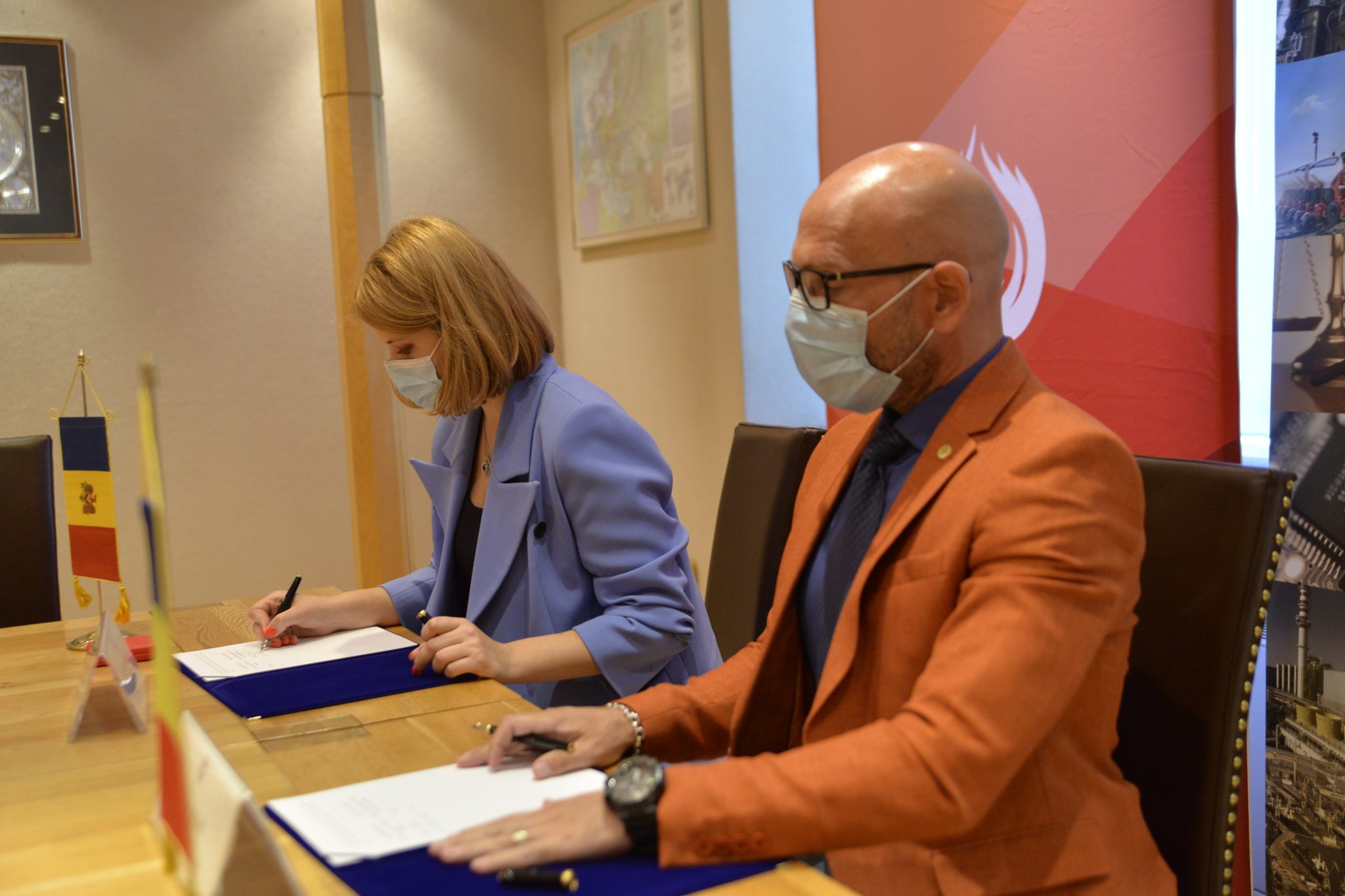Economy
European commission urges corrections to Bulgarian-Russian south stream agreement
Reading Time: 4 minutesThe European Commission is calling for changes to the Bulgarian-Russian inter-governmental agreement on the South Stream gas project. The project agreements, just signed for the Bulgarian section of this Gazprom-led project (EDM, November 16) are also generating serious complications in and for Bulgaria.
By Vladimir Socor
The European Commission is calling for changes to the Bulgarian-Russian inter-governmental agreement on the South Stream gas project. The project agreements, just signed for the Bulgarian section of this Gazprom-led project (EDM, November 16) are also generating serious complications in and for Bulgaria.
On November 15 in Brussels, the European Commission asked Bulgaria to amend the inter-governmental agreement on the country’s accession to South Stream. The commission’s spokeswoman, Marlene Holzner, noted the agreement’s failure to provide for competitive access to the pipeline and for separation of supply from transmission. The commission offers its assistance to the Bulgarian government for making the appropriate corrections (Euractiv, November 15, 17).
Signed in January 2008 by the Bulgarian government in power at that time, and ratified by that parliament in July 2008, the inter-governmental agreement needs to be brought into line with the European Union’s energy market legislation. This legislative package, adopted in 2009 and due to take effect in 2011, promotes competition against monopoly practices. The requirements include separating (unbundling) the gas supply business from pipeline transportation, instituting in each case an independent pipeline operator, and ensuring competitive access to pipeline capacities for third-party suppliers.
While the European Commission’s objections focus explicitly on the Bulgarian-Russian inter-governmental agreement, they must presuppose amending also the follow-up project agreements, signed in Sofia on November 13. These would almost certainly necessitate clarifications for Bulgaria’s own protection from possible claims by Gazprom in the future. During the November 13 signing event in Sofia, Russian Prime Minister, Vladimir Putin, criticized the EU’s anti-monopoly legislation for hurting Gazprom’s interests in EU countries, including Bulgaria (Interfax, November 13).
Given this Russian attitude, Bulgaria risks being caught between EU law and Gazprom demands based on the project agreements; unless any discrepancies with EU law are removed also from the project agreements, which themselves grew out of the inter-governmental agreement. Moreover, the project agreements just signed do not seem to provide for an independent pipeline operator, thus apparently contravening the EU legislation’s unbundling requirements.
All this means that Bulgaria must go back and discuss the necessary corrections with Russia. In the case of the inter-governmental agreement, any amendments will be subject to parliamentary ratification, as was the original document itself. Bulgaria’s Ministry of Foreign Affairs has wasted no time recognizing this situation and also apparently bringing the project agreements into this discussion. The Bulgarian side has notified the Russian side about the need for corrections in line with EU law (BTA, November 16; Dnevnik, 24 Chasa, November 16, 17).
The inter-governmental agreement excludes third parties from using the South Stream pipeline on Bulgarian territory. This in effect ensures a monopoly position for Gazprom. The November 13 project agreements have changed nothing in this regard. The EU legislation, however, requires competitive access to pipelines. It also allows partial exemptions in some cases, such as project companies building new pipelines (such as the Nabucco project). Such companies may apply to the commission for approval of derogations from third-party access requirements. According to Bulgarian Economy and Energy Minister, Traicho Traikov, Bulgaria intends to apply for reserving 50 percent to 70 percent of the putative South Stream pipeline’s capacity for the project company itself –for Gazprom’s gas.
Bulgarian government officials cite the Nabucco project as a possible precedent for exempting the South Stream pipeline from EU law on third-party access (Novinite, BTA, November 16, 17). Nabucco and South Stream, however, are far from being equivalent from the standpoint of anti-monopoly legislation. Unlike Gazprom, none of the companies in Nabucco acts as a supply monopolist on European markets; and none controls the Nabucco project, unlike Gazprom which controls South Stream overall (50 to 51 percent ownership of South Stream’s sections in each participant country). Moreover, Gazprom’s 50 percent ownership of the Bulgarian section of South Stream contravenes the EU legal requirement of unbundling the gas supply from transmission operations.
As an EU member since January 1, 2007, Bulgaria was notified by the European Commission in January 2008 that some aspects of the inter-governmental agreement with Russia, were incompatible with EU legislation and had to be amended. The Bulgarian government of that time, socialist and Moscow-friendly, ignored those recommendations. The current Prime Minister, Boyko Borissov, has now apparently discovered this fact and accuses the predecessor government of having hidden the commission’s 2008 letters from the public (Dnevnik, 24 Chasa, November 16, 17).
Meanwhile, the current center-right government has yet to answer the commission’s April 2010 letter which raised further questions about the inter-governmental agreement (Euractiv, November 15, 17). Borissov deprecated Nabucco as elusive and too expensive for Bulgaria, following the signing of the South Stream project agreements in front of Putin (24 Chasa, November 15).
While the European Commission is proceeding strictly from a legal and technical standpoint, the US Embassy in Sofia is raising policy issues of supply security and transparency regarding South Stream. The US Ambassador, James Warlick, had all along brought these issues to the Bulgarian public’s attention through his frequent interviews in local media on energy policy. Warlick is now re-emphasizing the need for supply diversification (alluding to overdependence on Russia) and reminding the Bulgarian government about its commitment to the EU-backed Nabucco project (Novinite, Standart, 24 Chasa, November 16, 17).
In Brussels, the Ukrainian Ambassador to the EU, Kostyantyn Yeliseyev, has commented in this connection that “Ukraine opposes the construction of South Stream, a political project devised to exert pressure on Ukraine, but which makes no economic or technological sense, and requires an environmental assessment” (UNIAN, November 17). This statement sums up the Ukrainian government’s strongly argued view about the South Stream project (EDM, September 21). Ukraine will continue, for as long as it can, blocking a pipeline through its Black Sea exclusive economic zone from Russia to Bulgaria.
Moreover, some Romanian officials seem to relapse into another short-lived cycle of illusion about the South Stream project. Only a few days before Putin’s visit to Bulgaria for the signing event there, Romania’s Transgaz held talks with Gazprom in Moscow about Romania’s possible participation in South Stream (Bursa [Bucharest], November 12). Both Moscow and Sofia (each for its own considerations) regard Romania as a potential competitor against Bulgaria for joining the South Stream project. Putin and Gazprom’s CEO, Aleksei Miller, again insinuated this in Sofia (Interfax, Novinite, November 13, 14). This perception tends to strengthen Moscow’s hand vis-à-vis both Sofia and Kyiv; while Bucharest gains nothing from its talks with Moscow. The European Commission (as well as local US embassies, on the Warlick example) might encourage the three capitals to communicate with one another about South Stream, in response to Moscow’s wedge-drawing tactics toward these Black Sea countries.
Economy
Moldova will receive a disbursement of 36 million euros as part of the the Economic Recovery Plan

This week, the European Commission approved the disbursement of 36 million euros in grant money for the Republic of Moldova. The announcement was made by Deputy Director-General for Neighbourhood Policy and Enlargement Negotiations at the European Commission, Katarina Mathernova, who paid an official visit to the Republic of Moldova between September 13-15, together with Managing Director for Russia, Eastern Partnership, Central Asia, Regional cooperation and OSCE, at the European External Action Service, Michael Siebert.
The EU officials had meetings with President Maia Sandu, Minister of Foreign Affairs and European Integration, Nicu Popescu, Speaker of Parliament, Igor Grosu, Prime Minister of the country, Natalia Gavrilita, as well as key representatives of Government, international financial institutions and the civil society, according to a press release issued by the Delegation of the European Union to the Republic of Moldova.
Beside such topics as the EU-Moldova relations and prospects, the priorities of the reform agenda of the new Moldovan Government, preparations for the Eastern Partnership Summit at the end of the year and the Transnistrian conflict settlement, the officials also discussed the EU assistance in support of reforms and the Economic Recovery Plan for Moldova, which was announced in June with a total EU support of 600 million euros over the next 3 years.
“The first measures under the Economic Recovery Plan will shortly materialize, with the expected disbursement of 36 million euros in grant money under budget support programmes to support the authorities’ efforts to fight against the consequences of the pandemic. Moldova can count on EU’s assistance on its path to reforms and to recovery, bringing tangible results to citizens,” Katarina Mathernova stated.
The plan is based on assistance provided by the European Union through various bilateral and regional instruments, aiming to mobilize the funds in the form of grants, loans, guarantees and macro-financial assistance.
“The Economic Recovery Plan for the Republic of Moldova involves much more, not just this financial support provided immediately. It must help digital transformation, strengthen infrastructure, energy efficiency, education and support small and medium-sized enterprises,” the EU official also said.
As Prime Minister Natalia Gavrilita informed, “The Economic Recovery Plan and the 5 flagship initiatives for Moldova in the Eastern Partnership will directly contribute to the reform and consolidation of institutions, stimulate long-term socio-economic development, bring direct benefits to citizens, and unleash new economic opportunities through promoting the green agenda and digitization. Small and medium-sized enterprises (SMEs) have been hit hard by the crisis. Promoting and diversifying access to finance and reducing collateral requirements will be essential in supporting economic operators. We are grateful to the EU partners who will launch two programs to support 50 000 independent Moldovan SMEs to adapt to the new conditions.”
President of the Republic of Moldova, Maia Sandu, welcomed the decision of the European Union to disburse about 745 million lei in grant money, as the official page of the President’s Office announced. “EU support comes after a long period of freezing of European assistance, caused by former governments. We managed to relaunch the political dialogue with the European Union and resume financial assistance. The Republic of Moldova is gradually regaining the trust of its strategic partners. This European support is also a signal of encouragement for the new Government team in its commitment to clean up the institutions, fight corruption and launch development programs in the country,” said Maia Sandu.
Photo: unknown
Economy
Romania and Moldova signed a partnership memorandum pledging to cooperate in promoting their wines

The Chamber of Commerce and Industry of Romania (CCIR) and the National Office for Vine and Wine (NOVW) of the Republic of Moldova signed, last week, a memorandum of cooperation on organizing joint promotional activities in the markets of common interest, as the CCIR announced.
China, Japan or the USA are just some of the markets targeted by the Romanian and Moldovan institutions. The memorandum also involves advertising activities for wines from common indigenous varieties, promoting the oeno-tourist region, developing a tourist route in the two states, exchange of experience, study visits, and mutual support in identifying new export opportunities. “We are very confident that this collaboration between our organizations will lead to sustainable economic growth and a higher degree of well-being among Moldovans and Romanians,” claimed Deputy Secretary-General of CCIR, Bogdan Visan.
On the other hand, Director of the NOVW, Cristina Frolov, declared that no open competition with Romania is aimed at the governmental level of the Republic of Moldova. “This request for collaboration is a consequence of the partnership principle. Romania imports 10-12% of the wine it consumes, and we want to take more from this import quota. Every year, the Romanian market grows by approximately 2.8%, as it happened in 2020, and we are interested in taking a maximum share of this percentage of imported wines without entering into direct competition with the Romanian producer,” the Moldovan official said. She also mentioned that Moldova aims at increasing the market share of wine production by at least 50% compared to 2020, and the number of producers present on the Romanian market – by at least 40%.

Source: ccir.ro
**
According to the data of the Romanian National Trade Register Office, the total value of Romania-Moldova trade was 1.7 billion euros at the end of last year and over 805 million euros at the end of May 2021. In July 2021, there were 6 522 companies from the Republic of Moldova in Romania, with a total capital value of 45.9 million euros.
The data of Moldova’s National Office of Vine and Wine showed that, in the first 7 months of 2021, the total quantity of bottled wine was about 27 million litres (registering an increase of 10% as compared to the same period last year), with a value of more than one billion lei, which is 32% more than the same period last year. Moldovan wines were awarded 956 medals at 32 international competitions in 2020.
Photo: ccir.ro
Economy
Moldova’s hope to be a top walnut exporter and its main difficulties

The Republic of Moldova has perfect weather conditions for growing walnut trees, that creating a great potential of walnut production and trade, especially on international markets, where the demand is way higher than the product’s supply. National and international experts believe that the country’s walnut production industry is on the verge of important transformations, which could lead to increased yields, quality and competitiveness worldwide.
According to authorities, Moldova exports 34-35 thousand tons of walnuts in shell, which is about 7% of the total export of fruit and 5% of the total export of horticultural products. The export value is assessed as being $120 million, that being 57-60% of the total fruit export value and about 50% of horticultural export value. Most of walnut crops are exported to the EU countries, such as France, Germany, the Netherlands, Romania and Austria. The country’s exports were among the world’s top 10 when it comes to the highest dollar value of the product during 2020.
Viorel Gherciu, Minister of Agriculture and Food Industry, pointed out that the production in the domestic walnut industry has increased by 55% in the last five years, which ranks Moldova among the main producers in the world.
“The biggest opportunity for this industry is that we are in the geographical proximity of the largest walnut import area in the world, which is the European Union, with almost 40% of total imports in the world. We are on the EU border, with privileged relations, with an Association Agreement. We already enjoy a good relationship in working with European importers, they trust our processors. A very close collaboration has been created and this is, in fact, the guarantee for those who invest in the area,” claimed the president of the Walnut Producers Association, Oleg Tirsina.
The data provided by the National Bureau of Statistics show that there are 34.7 thousand hectares of walnut plantations in the country. 20.90 hectares are represented by orchards. 75% of planted orchards are formed of old varieties trees. 30-35% of the exported production comes from orchards, the rest comes from individual farmers and plantations along the roads. This means that the quality of walnut production is not at its maximum potential. Developing commercial plantations through orchards modernization and extension of walnut varieties would provide double yield and better quality, experts say.
Governmental support in the form of subsidizing solutions, foreign investments and credit options are indispensable for the industry development. One of the financing options is the credit line of the European Investment Bank Project. Since 2016, 15 producers and processors of nuts, almonds and hazelnuts have benefited from these loans with the total amount of investments worth 8.7 million euros. A further extension of the project would provide another 60 million euros for the modernization of the horticultural sector in general and for harvesting organic walnuts in particular.
Photo: heymoldova.com





















